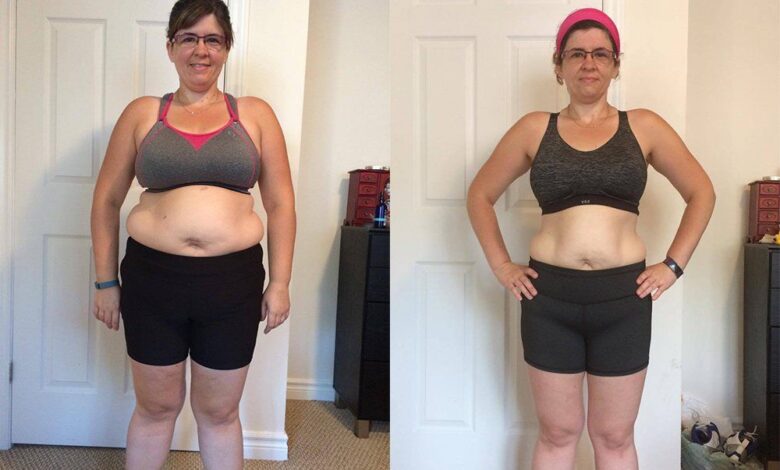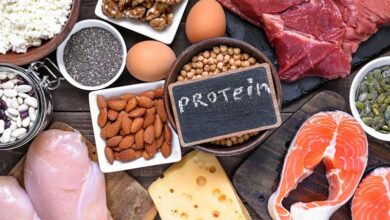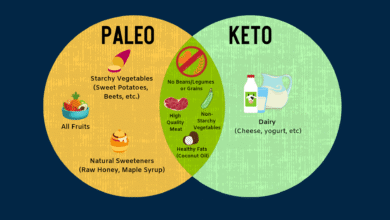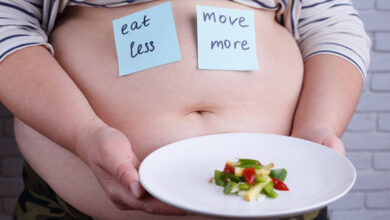Weight Loss for Women Over 40: Proven Hormone, Diet, and Exercise Strategies That Work

Losing weight in your 20s might have felt straightforward—eat less, move more, and watch the pounds disappear. But once women cross the age of 40, the body begins to shift in ways that make weight management more complex. Hormonal fluctuations, slower metabolism, and lifestyle changes all combine to make weight loss feel like climbing uphill with weights strapped to your ankles. Yet here’s the truth: weight loss after 40 is not impossible. With the right approach—understanding how your hormones affect your metabolism, eating the right foods, and choosing smart exercise—you can lose fat, improve energy, and feel more confident than ever before. In this in-depth guide, we’ll break down everything you need to know about weight loss for women over 40, from science-backed diet tips to hormone balancing and exercise routines designed specifically for your stage of life.
Read Also Keto vs Paleo for Weight Loss: Proven Diet Comparison for Fat Burning and Healthy Living
Understanding Why Weight Loss Gets Harder After 40
For many women, the frustration starts with the realization that the same strategies that once worked—like cutting calories or hitting the treadmill—just don’t deliver results anymore. Why is that? The answer lies in biology. As women approach perimenopause and menopause, estrogen and progesterone begin to decline. These hormonal changes affect fat storage, appetite regulation, and even muscle mass retention. In addition, metabolism naturally slows as you age, meaning your body burns fewer calories even at rest. Combine that with years of accumulated stress, sleep issues, and possibly sedentary work, and you have the perfect recipe for stubborn weight gain, particularly around the belly. The key here is not to rely on “quick-fix” fad diets but instead to work with your body’s new physiology. Understanding the science behind these changes empowers you to make adjustments in your nutrition, workouts, and lifestyle that actually move the needle.
Hormones and Weight Loss: What Women Over 40 Need to Know
Hormones act as your body’s internal communication system. When they’re balanced, they keep hunger, energy, and fat storage under control. But when they fluctuate—as they do after 40—your body can feel like it’s working against you. For example, declining estrogen levels can encourage your body to store fat around the midsection instead of the hips or thighs. Cortisol, the stress hormone, may spike due to career and family demands, further fueling abdominal fat. Thyroid hormones, which regulate metabolism, may also decline subtly, making calorie burning less efficient. This doesn’t mean you’re doomed. It simply means you need to adopt strategies that rebalance these hormones naturally. Eating protein-rich meals, practicing stress management, lifting weights to preserve muscle, and getting quality sleep are all tools to bring your hormones back in sync. Think of it as shifting from fighting your biology to partnering with it.
The Best Diet Strategies for Women Over 40
When it comes to diet, women over 40 need to think beyond calories. It’s about nutrient density, blood sugar balance, and metabolism support. Protein should take center stage because it helps preserve lean muscle mass and keeps you full longer. Healthy fats, like those from avocado, nuts, and olive oil, stabilize hormones and provide lasting energy. Fiber from whole grains, fruits, and vegetables supports digestion and helps regulate blood sugar spikes. Carbohydrates aren’t the enemy; instead, choose complex carbs like quinoa, oats, and sweet potatoes. Avoid ultra-processed foods, added sugars, and crash diets that wreak havoc on metabolism. Instead, focus on balanced meals with the right portions. A practical strategy is the 80/20 rule—eating nutrient-rich, whole foods 80% of the time while allowing occasional indulgences. This sustainable approach keeps your metabolism active and prevents the yo-yo effect that comes with restrictive eating.
The Role of Protein in Weight Loss After 40
Protein deserves a spotlight because it’s the foundation of muscle preservation, and muscle is your metabolism’s best friend. After 40, women can lose up to 1% of muscle mass per year, which lowers daily calorie burn. Increasing protein intake not only counteracts this loss but also reduces cravings by keeping blood sugar steady. Aim for at least 25–30 grams of protein per meal, whether from chicken, fish, eggs, Greek yogurt, or plant-based sources like lentils and tofu. Studies show that protein boosts the thermic effect of food—meaning your body burns more calories digesting protein than carbs or fats. In simple terms, eating protein is like giving your metabolism a little bonus workout. If you’re struggling to hit protein goals, consider a clean protein shake as a supplement, but always focus on whole foods first.
Why Fiber Is Your Secret Weapon for Fat Loss
Fiber is often overlooked, but for women over 40, it’s a game-changer. Not only does it improve digestion and reduce bloating, but it also helps regulate blood sugar, preventing energy crashes that can trigger overeating. High-fiber foods also promote feelings of fullness, making it easier to stay on track without feeling deprived. Think vegetables, berries, beans, and whole grains. Fiber also feeds the “good” bacteria in your gut, which play a surprising role in weight management and hormone balance. Aiming for 25–30 grams of fiber per day is ideal, but increase gradually to avoid digestive discomfort. Adding fiber-rich snacks—like apple slices with almond butter or roasted chickpeas—can help you reach your goals while keeping cravings in check.
Smart Exercise Strategies for Women Over 40
The type of exercise that worked in your 20s might not deliver the same results now. Endless cardio sessions, for example, can sometimes increase cortisol, making fat loss harder. Instead, strength training should be the foundation of your workouts. Lifting weights two to three times a week builds muscle, strengthens bones, and keeps your metabolism humming. Combine that with high-intensity interval training (HIIT), which alternates between short bursts of effort and recovery, for efficient fat burning. Walking, yoga, and pilates are excellent low-impact complements that improve flexibility and reduce stress. The goal isn’t to overtrain but to find a mix of strength, cardio, and restorative exercise that works for your body’s current needs.
Strength Training: Building Lean Muscle After 40
Strength training is non-negotiable for women over 40. Not only does it prevent age-related muscle loss, but it also improves insulin sensitivity, making your body more efficient at using carbohydrates. The result? Less fat storage. Don’t worry—you won’t bulk up. Women naturally don’t have the testosterone levels to build bodybuilder-style muscle. Instead, you’ll develop lean, toned muscles that make your body more sculpted and increase daily calorie burn. Focus on compound movements like squats, deadlifts, push-ups, and rows, which engage multiple muscle groups. Start with light weights and progress gradually to challenge your body. Pair strength training with proper recovery, including rest days and protein-rich meals, to maximize results.
High-Intensity Interval Training (HIIT) for Fat Loss
HIIT has gained popularity because it delivers big results in less time, and it’s especially effective for women over 40. Short bursts of high-intensity effort followed by recovery not only burn calories during the workout but also elevate your metabolism for hours afterward—a phenomenon known as the “afterburn effect.” A simple example could be 30 seconds of sprinting followed by one minute of walking, repeated for 15–20 minutes. This style of training improves cardiovascular health, supports fat loss, and can be adapted to almost any fitness level. The key is consistency—two or three sessions per week are enough to see results. Pair HIIT with strength training for a balanced program that tackles fat from all angles.
The Importance of Sleep and Stress Management
Sleep and stress are often underestimated factors in weight loss, but they play a massive role in women over 40. Poor sleep disrupts hunger hormones like ghrelin and leptin, making you crave more food. Stress raises cortisol, which encourages fat storage, especially in the belly. Together, lack of sleep and chronic stress create a cycle of overeating, low energy, and stubborn weight gain. Prioritizing 7–9 hours of restful sleep and incorporating stress management techniques—like meditation, deep breathing, or even daily walks—can reset your system. Think of sleep as your body’s reset button: when it’s pressed consistently, weight loss becomes much easier.
Hydration and Its Impact on Fat Loss
Water is the most underrated weight-loss tool. Dehydration can slow metabolism, increase cravings, and make you feel sluggish. Women over 40 often confuse thirst with hunger, leading to unnecessary snacking. Drinking enough water—about 8–10 cups per day—supports digestion, reduces bloating, and helps your body metabolize fat more efficiently. Adding electrolytes or infusing water with lemon, cucumber, or mint can make it more enjoyable. A simple hack is to drink a glass of water before each meal, which can reduce overall calorie intake. Think of hydration as fueling your internal “fat-burning engine.”
Common Weight Loss Mistakes Women Over 40 Make
Many women over 40 fall into traps that sabotage progress. These include skipping meals (which slows metabolism), doing only cardio, cutting out entire food groups, or relying on “detox teas” and quick fixes. Another mistake is ignoring strength training and focusing solely on the scale. Remember, muscle weighs more than fat but takes up less space—so you may look slimmer even if the scale doesn’t budge much. The solution is to focus on body composition and overall health rather than just numbers.
Supplements That Support Weight Loss After 40
While food should always come first, certain supplements can support your journey. Vitamin D supports bone and immune health, omega-3 fatty acids fight inflammation, and magnesium aids sleep and muscle recovery. Probiotics help with digestion and gut health, while protein powder can bridge nutritional gaps. Always consult with a healthcare provider before starting supplements, especially if you’re on medication. Think of supplements as “helpers,” not magic pills—they work best alongside a solid diet and exercise plan.
Creating a Sustainable Lifestyle, Not a Temporary Fix
The ultimate key to weight loss after 40 is sustainability. Crash diets may deliver quick results, but they’re impossible to maintain and often lead to rebound weight gain. Instead, focus on building habits you can keep for life—balanced meals, enjoyable exercise, stress management, and prioritizing sleep. Think of it as building a strong foundation rather than chasing a quick win. This mindset shift turns weight loss into a byproduct of living a healthier lifestyle, not an endless struggle.
Conclusion
Weight loss for women over 40 is not about fighting against your body—it’s about working with it. By understanding how hormones affect metabolism, focusing on nutrient-rich foods, building strength, and managing stress, you can shed stubborn fat and boost energy. The journey may require more patience and consistency than before, but it’s absolutely achievable. With the right approach, your 40s and beyond can be your healthiest, strongest, and most confident years.
FAQs
1. Can women over 40 really lose weight without strict dieting?
Yes. By focusing on balanced meals, protein, fiber, and exercise, women can lose weight without extreme diets. Consistency matters more than restriction.
2. How often should women over 40 exercise?
A mix of 3–4 weekly workouts is ideal—strength training twice, plus HIIT or cardio, and one restorative activity like yoga.
3. Do hormones make weight loss impossible after 40?
No. Hormones influence fat storage, but with proper diet, exercise, and stress management, you can balance hormones naturally and lose weight effectively.
4. Should women over 40 take supplements for weight loss?
Supplements aren’t necessary but can help. Vitamin D, magnesium, omega-3s, and probiotics support metabolism, sleep, and hormone balance.
5. What’s the best first step for women struggling with weight after 40?
Start with small, sustainable habits—like adding protein to each meal, walking daily, and prioritizing sleep—before moving into advanced strategies.




One Comment